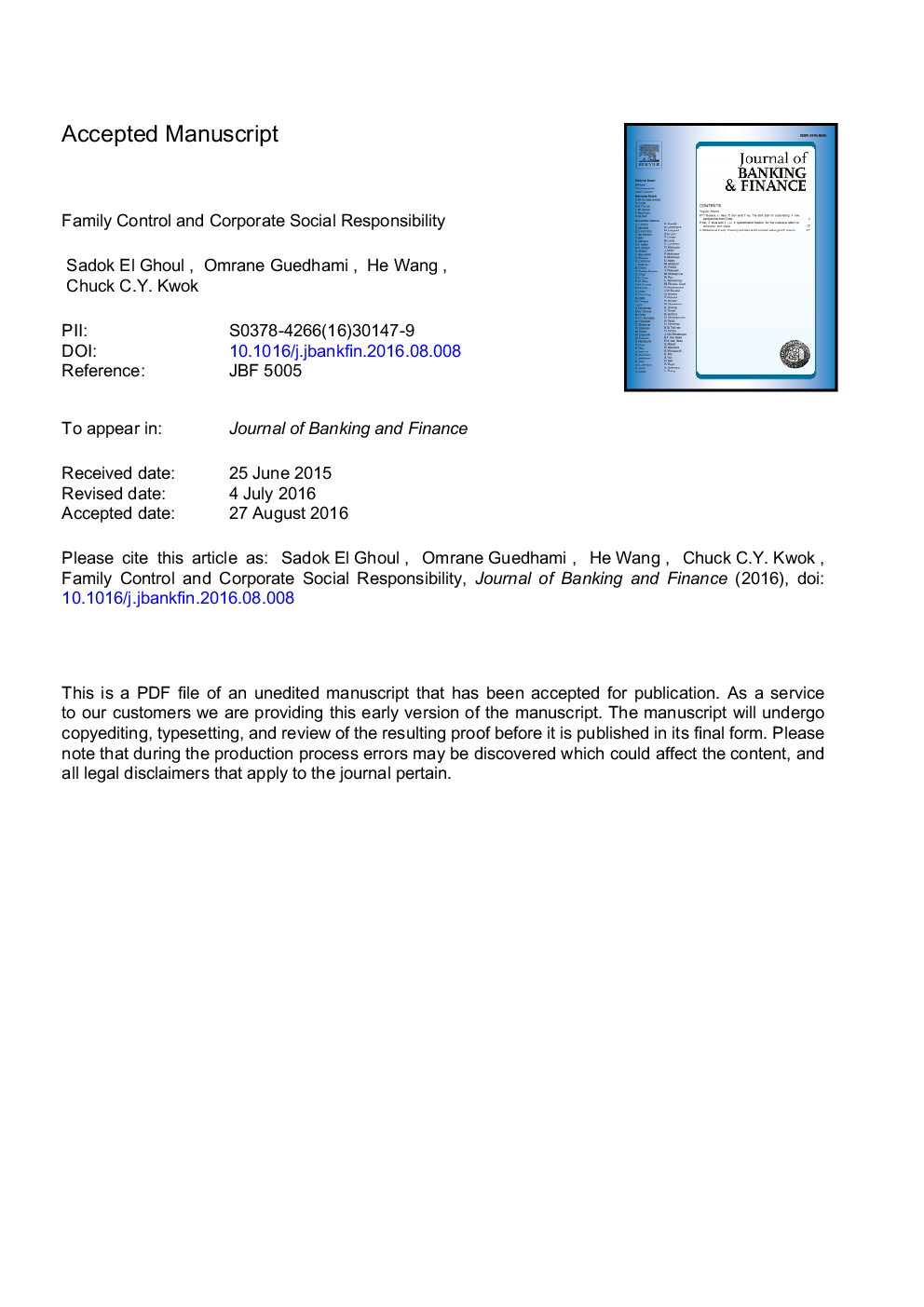| Article ID | Journal | Published Year | Pages | File Type |
|---|---|---|---|---|
| 5088130 | Journal of Banking & Finance | 2016 | 58 Pages |
Abstract
We investigate the impact of family control on corporate social responsibility (CSR) performance. Using newly collected data on the ultimate ownership structure of publicly traded firms in nine East Asian economies, we find that family-controlled firms exhibit lower CSR performance, consistent with the expropriation hypothesis of family control. The negative relationship between family control and CSR is robust to alternative measures of family control, different components of CSR, as well as to endogeneity tests, subsample tests, and alternative estimation methods. We further find that CSR underperformance concentrates in family firms with greater agency problems and in countries with weaker institutions. Moreover, the underperformance of East Asian family firms holds when controlling for the effects of other large shareholders and when comparing with family firms from other countries. These findings contribute to understanding the determinants of CSR and highlight the importance of corporate governance and the institutional environment in improving CSR performance of family-controlled firms.
Keywords
Related Topics
Social Sciences and Humanities
Economics, Econometrics and Finance
Economics and Econometrics
Authors
Sadok El Ghoul, Omrane Guedhami, He Wang, Chuck C.Y. Kwok,
